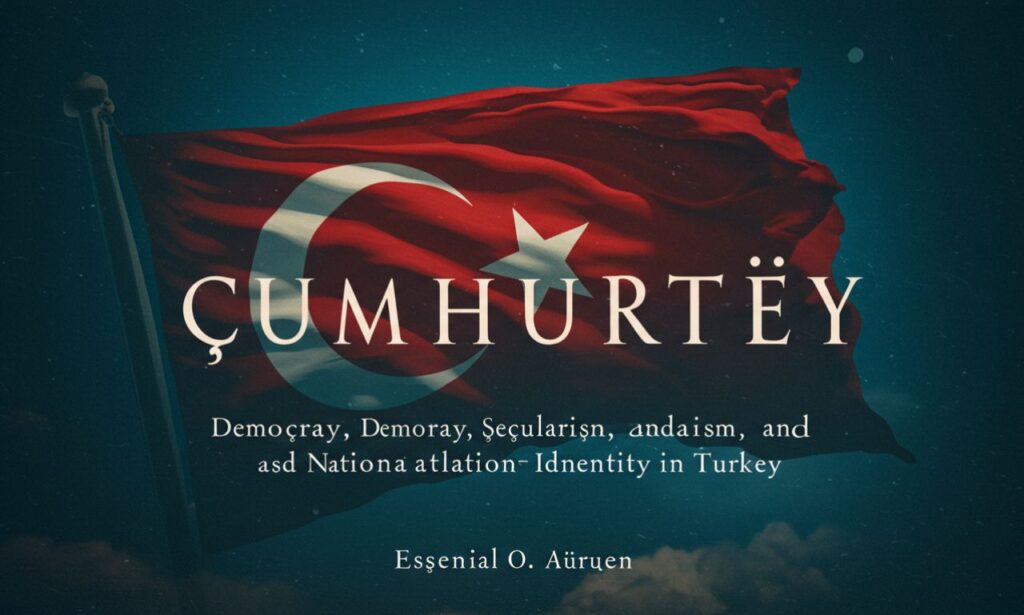Turkey stands at a unique crossroads of history, culture, and politics. At the heart of its modern identity is the concept of cumhuritey. This term encapsulates not just governance but also reflects a rich tapestry woven from democracy and secularism. As Turkey navigates through contemporary challenges, understanding cumhuritey becomes essential for anyone interested in its complex national landscape. What does it mean to be part of this evolving narrative? Let’s explore the essence of cumhuritey and how it shapes both individual lives and collective aspirations within this vibrant nation.
What is cumhuritey?
Cumhuritey is a term that represents the unique fusion of democracy and national identity in Turkey. It signifies a governmental system where sovereignty rests with the citizens rather than a monarchy or authoritarian rule.
The essence of cumhuritey lies in its commitment to secularism and modernity. This approach aims to create an inclusive society that respects diverse beliefs while promoting equal rights for all individuals.
In this context, cumhuritey becomes more than just a political ideology; it embodies the aspirations of a nation striving for progress amid historical complexities. The Turkish Republic, founded in 1923, serves as its cornerstone—a bold declaration aimed at breaking away from centuries of imperial governance.
Cumhuritey reflects Turkey’s journey towards creating a robust democratic framework rooted deeply within its cultural fabric.
The Evolution of Turkey’s National Identity
Turkey’s national identity has undergone significant transformations throughout its history. From the Ottoman Empire’s vast multicultural tapestry to the establishment of modern Turkey in 1923, this evolution reflects a complex interplay of culture, religion, and politics.
The founding principles emphasized Turkish nationalism and secularism. These ideals aimed to unify diverse ethnic groups under a singular national identity. Language reforms played a pivotal role in consolidating this sense of belonging.
As global influences grew stronger, Turkey faced challenges in balancing tradition with modernization. The rise of various political movements sparked debates about what it means to be truly “Turkish.”
In recent years, there have been attempts to revisit historical narratives that include minority voices. This shift signifies an ongoing negotiation between past legacies and contemporary aspirations for inclusivity within the framework of cumhuritey.
The Role of Democracy in Cumhuritey
Democracy is a cornerstone of cumhuritey, serving as its backbone. It reflects the will of the people and emphasizes their right to participate in governance.
In Turkey, democracy manifests through elections, where citizens voice their preferences. This process fosters engagement and accountability within government institutions.
However, challenges arise. Political polarization often complicates consensus-building among diverse groups. Still, democratic principles encourage dialogue and debate that can lead to progress.
The education system plays a crucial role in nurturing democratic values among future generations. Cultivating civic awareness ensures that young citizens understand their rights and responsibilities.
As Turkey navigates its political landscape, the strength of democracy remains pivotal for sustaining cumhuritey’s ideals. A robust democratic culture can empower individuals while promoting unity amidst diversity.
Secularism in the Turkish Constitution
Secularism in Turkey has deep roots, embedded in the fabric of its constitution. It is a principle designed to ensure that religion does not interfere with state affairs. This separation aims to create an inclusive environment for all citizens, regardless of their faith.
The founding father, Mustafa Kemal Atatürk, championed secularism as essential for modernization and national identity. His vision was clear: a progressive society should embrace rationality over religious dogma.
Article 2 of the Turkish Constitution explicitly states that Turkey is a secular republic. This legal framework protects individual freedoms while maintaining neutrality towards various religions.
Despite its constitutional guarantees, secularism faces challenges today. Political movements often blur these lines, leading to debates about what it means to be both Islamic and democratic in contemporary Turkey. The ongoing discourse reflects the dynamic nature of this foundational principle amidst changing societal values.
Challenges and Controversies Surrounding Cumhuritey
Cumhuritey faces significant challenges that highlight the complexities of its ideals. The tension between secularism and religious influence often sparks heated debates. Many argue that this balance is critical for maintaining a cohesive national identity.
Political polarization further complicates matters. Different factions interpret cumhuritey in varied ways, leading to conflict over governance and policy direction. This division can hinder progress toward unity.
Societal issues also emerge, particularly regarding minority rights and freedom of expression. Critics point out that not all voices are equally represented within the framework of cumhuritey, raising questions about true democracy.
International relations add another layer of complexity. Turkey’s position on global issues sometimes conflicts with its internal principles, creating friction both domestically and abroad.
These controversies reflect ongoing struggles as citizens navigate their aspirations within the evolving landscape of Turkish society.
Comparison to Other Forms of Government
Cumhuritey stands out when compared to other forms of governance. Unlike authoritarian regimes, it emphasizes the importance of citizen participation. People have a say in their leadership and policies.
In contrast to monarchies, where power is often hereditary, cumhuritey promotes meritocracy. Leaders are elected based on public support rather than lineage. This creates a more dynamic political landscape.
When placed alongside socialist systems, cumhuritey’s focus shifts towards individual freedoms and market economy. It allows for personal initiative while balancing social welfare programs.
Federal systems also differ significantly from cumhuritey’s centralized approach. The latter maintains strong national unity while still accommodating regional diversity within its framework. Each system offers unique strengths and challenges, making the comparison both intriguing and complex for analysts and citizens alike.
Is Cumhuritey the Future of Turkey?
The concept of cumhuritey embodies a dynamic vision for Turkey’s future. As citizens engage with democratic processes, their voices shape governance in meaningful ways.
Young generations are increasingly advocating for their rights and freedoms. This rising political awareness signals a shift toward an active civil society.
However, challenges remain. Political polarization complicates the landscape, leading to tensions among different factions. These divisions can hinder progress and stability.
Moreover, economic factors play a crucial role in shaping public sentiment about cumhuritey. A thriving economy is essential for sustaining democratic ideals.
Cultural influences also cannot be overlooked. The interplay between tradition and modernity will continue to influence national identity as Turks navigate their aspirations.
Whether cumhuritey becomes the cornerstone of Turkey’s future depends on collective efforts from diverse sectors of society to embrace change while respecting historical roots.
Final Thought
The concept of cumhuritey represents a unique blend of democracy, secularism, and national identity in Turkey. It reflects the aspirations of a diverse population seeking to balance tradition with modernity. As Turkey navigates its complex political landscape, the principles enshrined within cumhuritey will continue to shape its future.
Challenges persist, from internal divisions to external pressures. Yet, the commitment to democratic values and secular governance remains central for many Turks. The ongoing dialogue around these themes ensures that cumhuritey is not just a historical moment; it’s an evolving narrative.
As we look ahead, it’s clear that understanding cumhuritey is vital for anyone interested in Turkey’s path forward. Its implications stretch beyond borders, resonating with similar movements worldwide striving for equality and justice.
Turkey stands at a crossroads where decisions made today will influence generations to come. How this journey unfolds will be crucial in defining not only Turkish society but also its role on the global stage. The quest for identity is far from over; rather, it has just begun.

